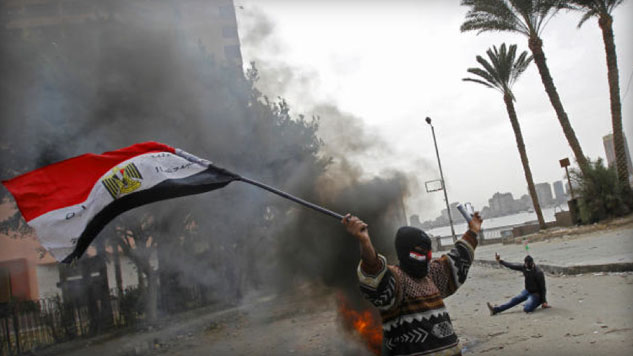Today, Egypt saw its biggest protest in its history.
Only two years after Egypt’s revolution, violence and protests fuel fears for a possible civil war. Thousands of protestors have flocked to the streets demanding for President Mohammed Morsi to step down. Meanwhile, the controversial leader has since declared that he remains confident he will serve out his term as Egypt’s first democratically elected president.
Clashes between the opposition and supporters of the country’s Islamist-led government these past few days have spun the intercontinental country out of control. Confrontations have left several dead and wounded, including a U.S college student who was stabbed by a protestor in Alexandria. Sectarian violence has become increasibly more frequent in Egypt, particularly after the passage of the country’s new constitution in september. But this conflict reveals a deeper seeded conflict stemming form dissatisfaction with the Muslim Brotherhood-aligned government of President Mohammed Morsi.

Polarization, bloody clashes, a weakened economy, power outages, fuel shortages, rising prices and a growth of lawlessness and crimes have defined President Morsi’s year-long presidency. While some have taken to the streets to protests the deepening economic crisis and deterioritaion of living-standards, many accuse Mursi’s Muslim Brotherhood of hijacking the revolution and using electoral victories to monopolize power and push through Islamic law. Meanwhile, supporters of Morsi have defended their leader stating that he has been democratically elected.
As protests and violence percolate, an atmosphere of corrosive anxiety continues to grip the streets of Egypt over the uncertainty of the country’s future.
UNBELIEVABLE PHOTO: Massive Anti-govt protests in Egypt. Protesters as far as the eye can see pic.twitter.com/7jGjdqAIcM – (pic @TheLazyShaman)
— NewsBreaker (@NewsBreaker) June 30, 2013
Our leaders should watch it. RT @FundiFrank: Wow!! RT @Makosewe: WOW! JUST WOW! ” #Tahrir square now. #Egypt #jun30 pic.twitter.com/oO6c6kOyTh”
— Nudih (@Reinhard_Asamo) June 30, 2013